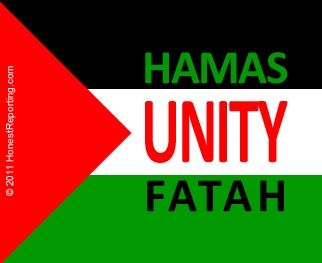
Everything you need to know about today’s media coverage of Israel and the Mideast.
The Government Press Office is asked to look into the legality of Iran’s Press TV’s Jerusalem correspondent amid allegations that he is a foreign agent. And the PLO throws another monkey wrench into peace talks.
Iranian Atomic Urgency
• From the WSJ:
A group of Iranian dissidents for the first time openly called on their government to suspend uranium enrichment, in an open letter published Monday that adds to the momentum of the international effort to convince Tehran to abandon its alleged nuclear weapons program.
• Publicly, the mullahs say this week’s explosion at a missile base was an accident, but — according to The Guardian — the regime believes the Mossad dunnit.
• Shimon Peres tells CNN it’s time for the world to wage a moral attack on Iran.
• Tzipi Livni got op-ed space in the Times of London: Iran’s already trying to undermine the peace process and the Arab Spring. Nukes would only make things worse:
Even before it gets nuclear weapons, Iran already poses a serious threat. The Arab uprisings put the region at a crossroads. They can either move it towards democracy and moderation, or radical and extremist forces can increase their influence. Iran plays a critical role in this decision. If the Arab and Muslim states are given to believe that the world is not sufficiently determined to stop Iran, they will have to make their own reckoning with Tehran, with disastrous consequences. In the politics of the playground, if you cannot stand up to the bully, you may have no alternative but to seek his protection.
Even before it gets nuclear weapons, Iran is a threat to the search for progress in the Israeli-Palestinian peace process, as the only chance for peace is with the moderates and the pragmatists. But through its support for Hezbollah, Hamas and Syria, Iran empowers the opponents of peace and weakens the hand of the moderates.
• The Asia Times notes an uptick in attacks on Iranian pilgrims in Iraq, “principally by road-side bombs targeting bus passengers.”
• Fareed Zakaria discussed the situation with Bret Stephens and Karim Sadjadpour. See more commentary/analysis at Time, Sky News, National Post, Reuters, Bloomberg News, YNet News, and CNN.
Peace Process
• As if the tattered peace process didn’t need any more monkey wrenches, the Palestinians tossed a new one into the mix. The PLO’s dropping the land-swap formula from peace talks:
Speaking to Gulf News, Tayseer Khalid, a member of the PLO Executive Committee, said that the formula was only mere talk by Israelis and mediators. “We have never signed an agreement with Israel, which states any shape of land swap formula,” he added. “Land swap formula is a heresay in the track of negotiations,” he said.
Good to see the Palestinians making a positive effort to revive the peace talks . . .
 • The glacial pace of Palestinian unity efforts inched forward, as Mahmoud Abbas and Khaled Mashaal agreed to meet in Cairo later this month. According to Maan News, Fatah and Hamas have agreed on May elections, subject to more disclaimers than a backyard paintball gun for kids:
• The glacial pace of Palestinian unity efforts inched forward, as Mahmoud Abbas and Khaled Mashaal agreed to meet in Cairo later this month. According to Maan News, Fatah and Hamas have agreed on May elections, subject to more disclaimers than a backyard paintball gun for kids:
The formation of a national unity government, restructuring the central election committee, creating an election court, and reforming the Palestinian security forces are all conditions which have to be met, he said.
The upcoming November meeting will discuss the status of the PLO, the future of the Palestinian Authority, the stalled peace process, upcoming elections and the nature of Palestinian resistance, al-Ahmad added.
• The French consul in Gaza, his wife and 13-year-old daughter were hit by shrapnel during Sunday’s IAF air strike on a Hamas naval facility. Reuters says their residence was just 200 meters from the site.
Earlier today, I blogged that it’s bad enough Hamas training facilities, rocket factories, arms depots and Qassam launching sites are in civilian areas. Now they’re embedding themselves among diplomats too?
• The Independent picks up on the government’s decision not to transfer $100 million in duties to the PA.
• More Israeli housing tenders to be issued in Jerusalem and the West Bank. LA Times coverage.
Arab Spring
 • The Syrian uprisng escalated with the first “hot” clash between the army and a group of — as Reuters puts it — “army defectors, insurgents, and civilians.”
• The Syrian uprisng escalated with the first “hot” clash between the army and a group of — as Reuters puts it — “army defectors, insurgents, and civilians.”
The death toll’s definitely high, but a specific number is hard to pin down at this point. Depending on who you read, when you read it (and whether or not these links are updated by the time you click them), the casualty count stood at “dozens,” “at least 35,” “40,” “more than 50,” 69,” “some 70,” more than 70, and “at least 96.”
Just before publishing this post, an AP update put the number at 90.
• A Lebanese talk show got really ugly when pro and anti-Assad representatives swore at each other, hurled insults, a glass of water — and almost a chair too — all on live TV. Details at AFP. Here’s the video.
• Where are Syrian rebels getting weapons from? Russian FM Sergei Lavrov accuses the West.
• New EU sanctions up the ante.
• Commentaries weighing in on Syria include staff-eds in the Times of London, LA Times and Boston Globe.
• Uh-oh. With Egyptian elections just two weeks away, female modesty is a campaign issue. The Media Line writes:
And, freed from the strictures of the Mubarak era, politicians are pushing forward on an Islamic agenda.
“It’s so frustrating,” says Marwa, who told The Media Line that she wears the veil in part because her mother wants it and partly out of the conviction that “it was the right thing to do.” But at the same time she is critical of politicians “who would dare tell a woman what is appropriate. That is un-Islamic.”
And a Reuters look at the campaign says “the gloves have come off.” Besides defacing posters, passing out bogus flyers and verbal attacks, there’s a lot of vote-buying largesse.
The group, respected for its track record of charitable work, has been handing out meat to prospective voters.
In one village, the Brotherhood’s Freedom and Justice party is offering half-price medicines and sponsored a football match, newspaper al-Dostour reported.
• See also this Globe & Mail op-ed on Islam and the Arab Spring.
Rest O’ the Roundup
 • Is Press TV’s Jerusalem correspondent a foreign agent? According to Haaretz, the Government Press Office has been asked to look into the legality of Ibrahim Husseini’s activities.
• Is Press TV’s Jerusalem correspondent a foreign agent? According to Haaretz, the Government Press Office has been asked to look into the legality of Ibrahim Husseini’s activities.
“He is not really an Iranian, he just represents the TV station that is owned by the Iranian regime. It seemed very strange to me that a journalist that works for such a station is able to work freely in Israel, and I am turning to the legal adviser of the Israeli government to check the legality of his activities, and to weigh up steps in terms of his status as a citizen, and whether it is right to take him to court over the fact that he represents an official Iranian body in Israel,” Eldad added.
Government Press Office Director Oren Helman told Israel Radio, “this is a legal question, I have never come across this issue before, I think that it is very rare.”
Banning a Press TV reporter from Israel certainly isn’t going change the channel’s output, but I hear the principle.
• Ilan Grapel talked to CNN about why he was in Egypt and his detention.
“I’m upset that we had to release 25 miscreants on my behalf.”
• Israel’s religious-secular “gender war” reaches AFP.
• Daily Telegraph: Israel to help Kenya fight al-Qaeda-linked Somali terror. More background at The Standard.
• Rachel Nolan talked to Ronen Bergman about his recent NYT Magazine cover story about the secret talks that lead to the Shalit prisoner swap.
• According to a new poll, 58 percent of the British public says the phone hacking scandal has “damaged their trust in UK newspapers.” An incredulous Erik Wemple asks:
Just what is that other 42 percent thinking? That the phone-hacking scandal has enhanced the credibility of the British press?

